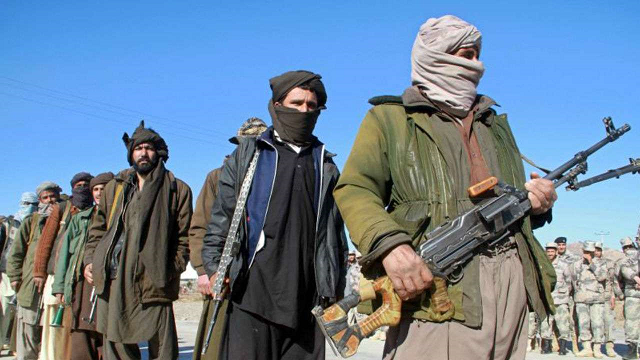Tracking Afghan peace moves
Pakistan is trying to convey that it has no favourites in Afghanistan and it is willing to work with all groups

PHOTO: AFP/FILE
The Afghan peace process is a complex affair. It has internal as well as external dimensions. While Pakistan at the request of the US delivered the Afghan Taliban on to the negotiating table, its bilateral ties with Kabul remained volatile, something that undermined peace efforts.
The volatility in their ties stemmed from the deep mistrust. At the heart of their troubled relationship is the apprehensions the two countries have against each other. Kabul has for so long accused Islamabad for backing the Taliban and other insurgent groups to create trouble in Afghanistan. Pakistan, on the other hand, has its own list of grievances. The number one concern is the nexus between Afghan intelligence agency, the NDS, and Indian RAW to hurt Pakistan’s interests through their proxies including outlawed TTP and other groups such as IS Khorasan (IS-K). Also, there has been suspicion in Pakistan that India has been working closely with the Ghani administration to scuttle peace efforts. These longstanding issues prevented the two countries to have meaningful engagement despite bilateral mechanism they set up to sort out their misgivings.
What brought the two estranged neighbours once again on one platform was because of the Trump administration’s eagerness to see the peace deal through successfully before the presidential elections in the US in November this year. For this purpose, the US is making all-out efforts. It was because of this reason that the Trump administration threatened to block security and other assistance to Afghanistan if the main rivals Ghani and Dr Abdullah Abdullah did not mend fences. The threat did work as the two agreed on a power-sharing deal recently. Dr Abdullah, who was the chief executive during the first term of President Ghani, is now head of the high peace council that would hold talks with the Taliban for the future political setup of Afghanistan.
In a nutshell, Trump’s ambition to portray Afghanistan as a success story before he goes for re-election has made all this possible. Now the big question: can all Afghan groups including the Taliban agree on a political system that is acceptable to everyone?
The Army Chief during a meeting with Ghani made it clear that Pakistan “supports an independent and democratic” Afghanistan. This means that Pakistan does not want the Taliban to take over Kabul through use of force but share power with other groups democratically. The appointment of Muhammad Sadiq, the former ambassador to Kabul, as special envoy for Afghanistan is a significant development. Sadiq during his stint as envoy to Kabul from 2008 to 2014 played a significant role in reaching out to non-Pashtun elements including the Northern Alliance and others in Afghanistan. His efforts helped Pakistan remove some of the misgivings with those parties. Through his appointment, Pakistan is trying to convey a message that it has no favourites in Afghanistan and it is willing to work with all groups. For now, the process in back on track but will the much-awaited intra-Afghan dialogue lead to any breakthrough? Much will not only depend on Afghans themselves but also the American establishment, which may not be on the same page with Trump.
Published in The Express Tribune, June 15th, 2020.
Like Opinion & Editorial on Facebook, follow @ETOpEd on Twitter to receive all updates on all our daily pieces.















COMMENTS
Comments are moderated and generally will be posted if they are on-topic and not abusive.
For more information, please see our Comments FAQ